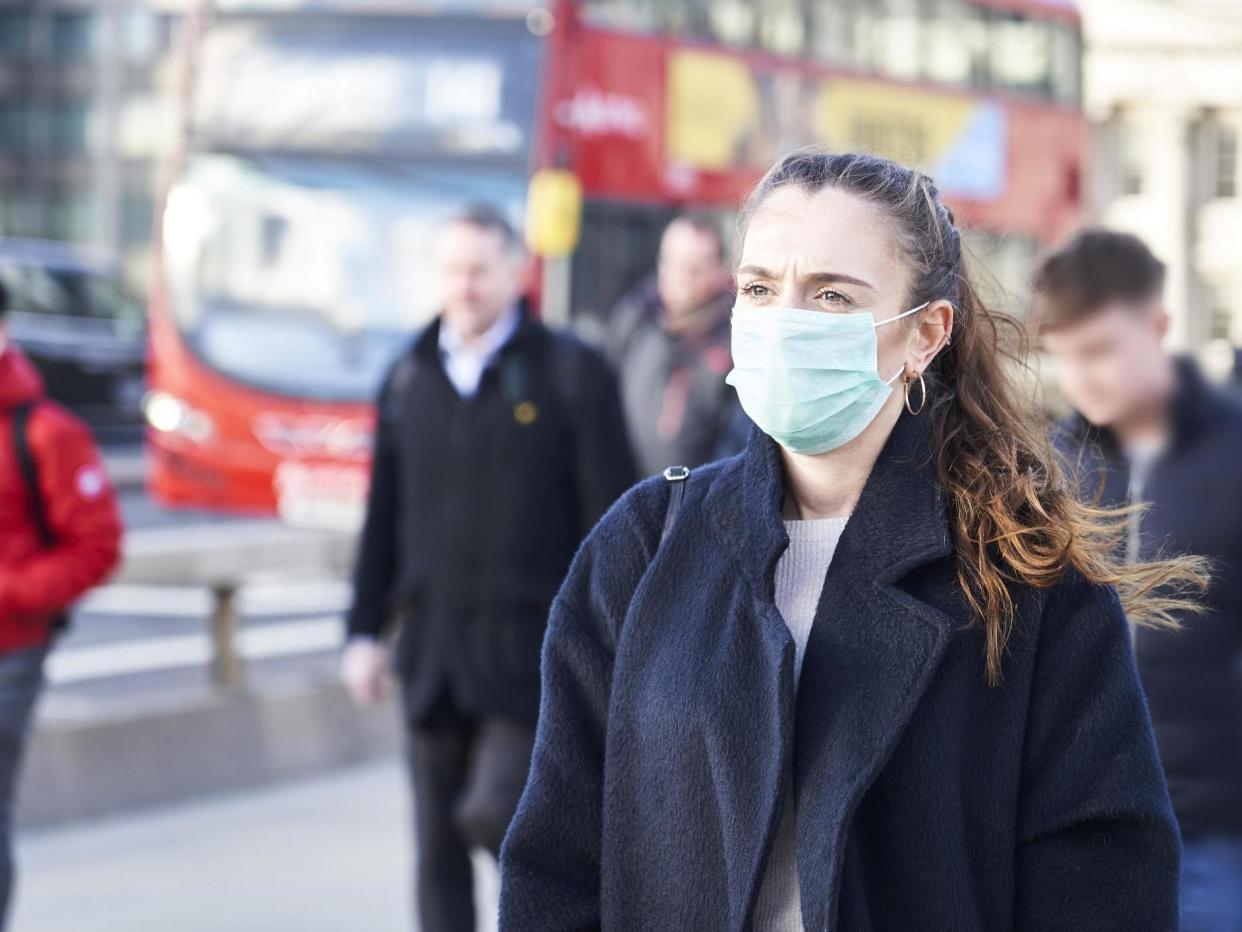Coronavirus: Face masks not enough to protect healthy people from contracting infection, says WHO

The use of a face mask alone in public is not enough to protect healthy people from contracting Covid-19, the World Health Organisation (WHO) has said.
In updated guidance published on Monday, WHO said face masks by themselves were insufficient to protect people in the community from becoming infected.
It came after a fresh analysis of evidence from Hong Kong, where people often wear face masks when ill out of courtesy, suggested widespread use may have halted the spread of Covid-19 in some regions.
Previous WHO guidance stated that only people displaying Covid-19 symptoms or those looking after an infected person should wear a face mask.
Following Monday’s review, WHO said there remains no clinical evidence to suggest that wearing a face mask in the community can protect healthy people from contracting respiratory infections including Covid-19.
However, wearing a face mask in public can capture respiratory droplets and therefore slow the spread of the virus – WHO’s guidance simply means that by wearing one there is no guarantee that you won’t get infected.
WHO reminded the public that the most effective way to stop the spread of Covid-19 was to practise frequent hand-washing social distancing measures.
“The use of medical masks in the community may create a false sense of security[...]” the report states.
“[...] neglect of other essential measures, such as hand hygiene practices and physical distancing [...] may lead to touching the face under the masks and under the eyes, result in unnecessary costs, and take masks away from those in health care who need them most, especially when masks are in short supply.”
Prof David Heymann, of the London School of Hygiene and Tropical Medicine, who chaired the WHO’s scientific and technical advisory group for infectious hazards, told The Guardian that even while wearing a face mask, the virus can still infect people through the eyes.
“Masks are only for the protection of others, not for the protection of oneself,” he said. “Healthcare workers, in addition to the masks, wear visors too, to protect the eyes.”
WHO advice states that people who begin to experience Covid-19 symptoms should wear a face mask, self-isolate and seek medical advice when they feel unwell, while those caring for them should also wear a mask.
WHO’s update is in contrast with guidance published by the US Centers for Disease Control and Prevention which is urging the US public to wear cloth face-covering in pharmacies, grocery stores and other public spaces where social distancing measures can be difficult to follow.
Read more
How to help the elderly and vulnerable during the coronavirus
How to feel less anxious about the coronavirus
How to be productive when working from home during coronavirus


